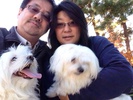Norman Chan: Hands off HK$3 trillion Exchange Fund 陳德霖:外匯基金是金融穩定最後防線 香港的“城墻”要高、“彈藥”要足,才可以抵禦未可預見的震蕩和衝擊
Johnson Choi-1008 07/28 65425.0/2 









Norman Chan: Hands off HK$3 trillion Exchange Fund 陳德霖:外匯基金是金融穩定最後防線 香港的“城墻”要高、“彈藥”要足,才可以抵禦未可預見的震蕩和衝擊

Hands off HK$3 trillion Exchange Fund, says monetary authority chief Norman Chan - HKMA chief Norman Chan says not one cent of the HK$3 trillion reserve can be spared for government spending on welfare or infrastructure
The head of Hong Kong's de facto central bank has rejected calls from some lawmakers to use part of the city's HK$3 trillion Exchange Fund to pay for infrastructure projects or welfare.
Norman Chan Tak-lam, the chief executive of the Monetary Authority, said the fund needed every cent to cope with unexpected financial crises.
Some HK$800 billion of the fund is kept in highly liquid low-risk assets so it can be deployed to back Hong Kong's monetary base and underpin the currency peg to the US dollar.
Most of the rest consists of the government's reserves and the fund's accumulated surpluses.
The fund has grown from HK$350 billion in 1993 to HK$3 trillion, prompting suggestions there is more than enough to maintain financial stability and that the surplus could be spent.
But Chan said the 2008 global financial crisis showed that the government should be ready for every eventuality.
The government decided to provide a full guarantee for the city's HK$5.8 trillion of deposits in 2008. The total assets of the local banking sector had grown to HK$17 trillion at the end of last year, Chan said.
"Without a sizeable Exchange Fund to back the blanket guarantee, we could not have restored the confidence of depositors and the market to maintain financial stability [in 2008]," he wrote in an article posted on the authority's website yesterday.
Chan also pointed out that in August 1998 the government intervened in the stock market to the tune of HK$118 billion in order to "drive away currency speculators". At the time the local market cap was HK$2 trillion; now it is over HK$24 trillion. Similar intervention now would need HK$1.4 trillion, Chan said.
"If the Exchange Fund did not hold sufficient assets we would not be in a position to undertake the necessary operation to protect Hong Kong against another speculative attack of this kind," he said.
The returns on the fund's investments have also been criticised. Last year it managed a return of 2.3 per cent, below the rate of consumer inflation.
In the first three months of this year, its return was down 64 per cent on the same period last year. Chan said the fund had to invest in a "conservative and prudent manner" and could not take "excessive risks".
The AAA sovereign rating Standard and Poor's gave to Hong Kong in 2010 was also due to the fund's assets, Chan said.
But Democratic Party lawmaker Sin Chung-kai said the HKMA should not "keep on saving like a never-ending story" and should study how much was really needed to handle a crisis.
(南早中文網訊)香港金融管理局總裁陳德霖今日(7月28日)在金管局官網網誌“匯思”上發表文章,稱香港的外匯基金是金融穩定的最後防線,香港的“城墻”要高、“彈藥”要足,才可以抵禦未可預見的震蕩和衝擊。
陳德霖表示,每年1月底,市民都很關心外匯基金前一年的投資表現,因為外匯基金是香港人的錢,賺與蝕當然和大家息息相關。
今年1月,金管局報告,外匯基金2013年全年賺1086億港元,為史上第二高,但由於持有大量美國國債,全年投資回報率只有4.4%,跑輸恆生指數23%的升幅,也跑輸強基金中混合型基金12%的回報。5月,有消息指,財政司長曾俊華要求“長遠財政計劃工作小組”深入研究“未來基金”落實細節,參考外匯基金的“長期增長組合”,為應對未來老齡化、財政赤字等問題做準備。
陳德霖在文中形容外匯基金是“強大後盾、穩定基石”,如果外匯基金規模不足,在金融危機、香港生死存亡的時刻就不能發揮充分的支撐作用。
他舉出1998年8月特區政府入市行動做例子,說外匯基金用了大約1180億港元買入大量港股,成功擊退大鱷、保住金融穩定,又假設是現在而非1998年發生同樣的情況,就需要動用當年12倍的資金入市,因此“豐厚的外匯基金是香港金融穩定的基石”。
陳德霖認為,一定要居安思危,切忌在太平盛世時自滿,缺乏危機意識,自毀長城。
對於市民認為外匯基金回報率偏低,表現不能令人滿意。陳德霖認為,基金的長期增長組合上限在累計盈餘三分之一是適當安排。
他在文中通過兩方面作出解釋,一方面試外匯基金投資策略不可能太進取,另一方面是外匯基金與一般的投資基金或主權基金不能直接比較。
在外匯基金的3萬億投資方面,陳德霖說,投資目標是“盡量保本,維持高流動性,令我們可以在短時間內套現,應付不能預見得到的金融動蕩和危機”。
陳德霖表示,有人認為,外匯基金從1993年底的3500億增加到2013年底的3萬億,有很大空間可以爭取部分作基建或社會政策用途,或者採取更加進取的投資策略。
但陳德霖認為,外匯基金規模增長的同時,香港的銀行和金融市場的規模也增長許多,如果外匯基金規模不足,金管局作出的擔保不一定能保住儲戶和市場人士的信心,維護金融的穩定。
在外匯基金與一般投資基金或主權基金的差異方面,陳德霖舉出三點。
一是外匯基金的“支持組合”只能持有美元現金和高流動性短期美元債券,即使收益不佳,也不可以投資其他資產類別, 在過去幾年美國實行超低利率和量化寬鬆的政策下,收益無可避免受到影響。
二是外匯基金的“投資組合”基本上以債券為主、股票為輔,在股市暢旺時,可能會跑輸一般股票基金,但在股市大起大落的時候,確能夠滿足力求不失的目標。
三是外匯基金的“長期增長組合”,主要投資私募股權和房地產,解禁一般主權基金的投資類別,該組合的表現至今為止令人滿意。陳德霖認為,在風險可控的大原則下, 維持長期增長組合的上限在累計盈餘三分之一是穩妥和適當的安排。
By Enoch Yiu, South China Morning Postenoch.yiu@scmp.com



